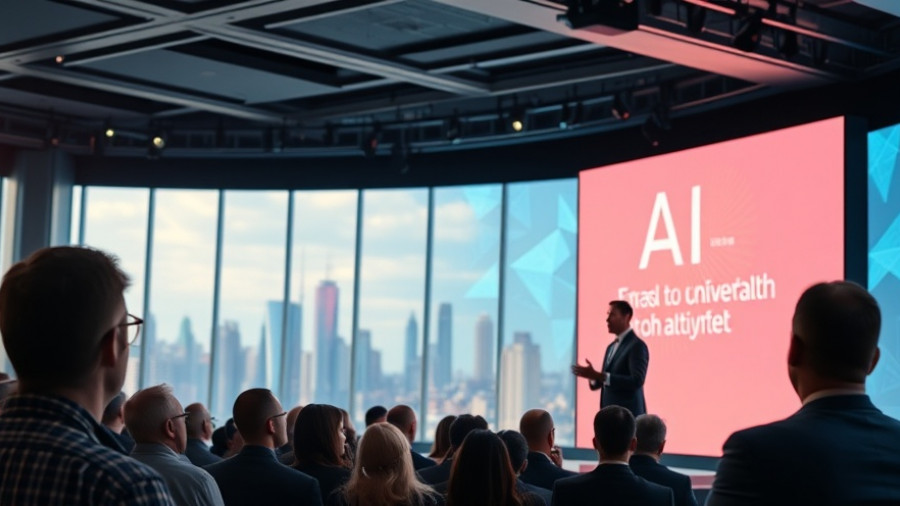
Understanding the AI Revolution: Insights from Dario Amodei
At the recent Dreamforce 2025 conference in San Francisco, Dario Amodei, CEO of Anthropic, raised some thought-provoking insights regarding the impact of artificial intelligence (AI) on employment and the future of work. Holding a prominent position in the AI landscape, Amodei highlighted his concerns about a significant and rapid disruption in the workplace. His skepticism stems from the fear that many might struggle to adapt to an evolving job environment where AI increasingly takes on roles traditionally held by human workers.
A Balancing Act: Work Transformation, Not Just Elimination
Despite his caution, Amodei believes that the rise of AI does not necessarily mean job losses but rather a transformation in the nature of work itself. He stated, "If Claude is writing 90 percent of the code, you might need more software engineers to supervise AI workflows." This perspective aligns with discussions about how jobs will change rather than disappear. Workers will need to develop new skills to manage more complex tasks while leveraging technologies such as Anthropic's Claude AI, which is already integrated into various business processes.
The Shifting Job Market: Opportunities Amid Uncertainty
The conversation about AI's impact on jobs sparked a broader dialogue among industry leaders, particularly at the intersection of emerging technologies and traditional employment practices. Recent research presented at the conference indicates that AI could displace "up to half of white-collar jobs" in the next five years, illustrating the urgency to prepare for upcoming challenges. However, this disruptive potential may create avenues for new roles that focus on managing, designing, and improving AI systems and their outputs.
Doubts on Adaptation: Are We Ready for AI?
At Dreamforce, Amodei reiterated the prevailing anxiety about AI’s rapid adoption. An economic index released by Anthropic showed that 77 percent of enterprises utilizing the Claude AI assistant focus on automation, raising concerns about how workers will adapt to these technologies. Amodei's sentiment reflects a common worry among business leaders: Can employees quickly upskill to keep pace with a workforce that is changing at unprecedented rates?
Talking Regulation: A Cloudy Horizon
While discussions on AI's implications continue to unfold, both Amodei and Salesforce's executives purposefully avoided a deeper conversation about regulatory frameworks. This omission poses a question not just for industry leaders but also for policy-makers: How can we safely manage AI's integration while ensuring the workforce's stability? A lack of regulatory guidance could exacerbate existing disruptions and create a more uncertain job landscape.
The AI Landscape and Future Predictions
In the face of these challenges, many industry experts remain cautiously optimistic about AI's transformational potential. Amodei sees hope in AI's ability to revolutionize biotechnology and other vital sectors, stating that despite risks, the benefits could be far-reaching, advancing science and improving quality of life. This duality of risk and reward must be balanced as businesses and governments create AI practices aligned with societal needs.
Conclusion: Preparing for an AI-Driven Future
As discussions surrounding AI gather momentum, the conversation must evolve beyond fear towards actionable strategies. Businesses, educators, and policymakers must unite to equip the workforce for a future where AI is normative, ensuring that technologies enhance human capital rather than undermine it. Adapting to AI isn't just about survival; it’s also about embracing the future with optimism and creativity.
 Add Row
Add Row  Add
Add 




Write A Comment